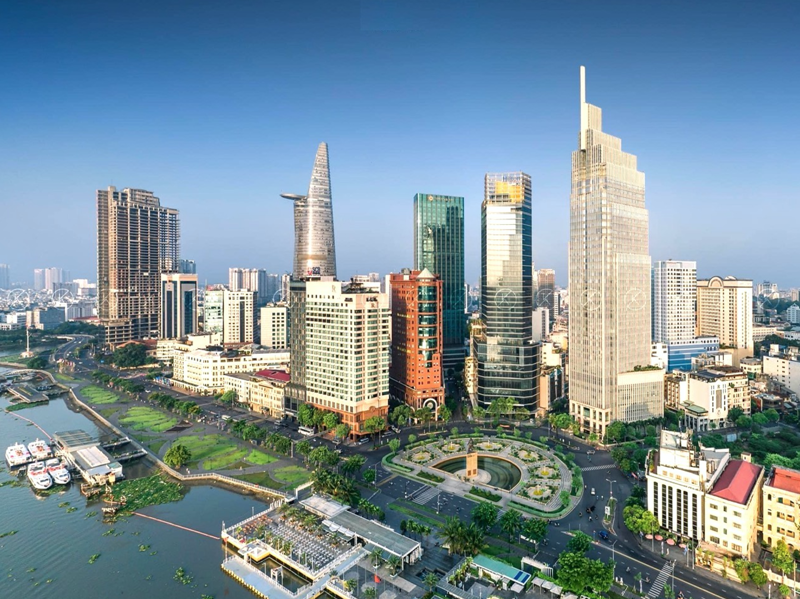Real estate is entering into a new cycle, and while the market has seen positive changes, challenges persist, according to Ms. Do Thu Hang, Senior Director, Advisory Services, at Savills Hanoi.
Since the beginning of 2023, the government has actively and continually addressed obstacles in the market. Notable legal instruments include Decree No. 08/2023/ND-CP, Resolution No. 33/NQ-CP, Decision No. 338/QD-TTg, Decree No. 10/2023/ND-CP, Circular No. 02/2023/TT-NHNN, Official Dispatch No. 1376/CD-TTg, Official Dispatch No. 965/CD-TTg, and others. The National Assembly passed the Law on Real Estate Trading 2023 and the Law on Housing 2023 in November.
The draft of the amended 2023 Land Law, meanwhile, is a major legislative endeavor that requires careful consideration prior to approval. While these policies improved the supply of new projects and products, limited supply continued.
In the second half of the year, liquidity improved from several apartment projects with reputable developers, products meeting appropriate quality standards, good handover quality and locations, legal assurance, complete and convenient amenities, and attractive sales policies. These policies included extended payment schedules and interest support.
From another perspective, Mr. Su Ngoc Khuong, Senior Director, Investment, at Savills Vietnam, believes that Vietnam continues to maintain significant appeal among foreign investors. With a population rapidly approaching 100 million, residential and office demand remains high, especially in major cities such as Ho Chi Minh City and Hanoi.
Despite some long-term challenges like those relating to legal procedures, Vietnam still attracts foreign investors given its strong economic growth and stable political structure. The government’s sound investment support policies and support of industrial parks have been pulled in FDI.
Real estate investment in Vietnam is largely divided into two main sections: project-level investment and enterprise-level investment. At the enterprise level, investors focus on listed real estate companies.
While Vietnam’s GDP growth was a modest 5.05 per cent in 2023, the country continues to be one of the strongest performers in the region and has captured the attention of investors, especially during challenging periods.
However, projects that meet standards remain limited, according to Ms. Hang. High housing prices continue to challenge liquidity, while legal concerns about the inability to complete projects when customers have fulfilled their obligations have also hindered transaction volumes.
Real estate enterprises vigorously restructured project portfolios last year, improving cash flow difficulties and reducing the burden of market filtration, which is still significant. This restructuring process often takes time to implement.
Ms. Hang pointed out that, entering into 2024, challenges remain and must be addressed before recovery will occur. If the amended Land Law is passed, it will be a significant driver for real estate alongside the Law on Real Estate Trading 2023 and Law on Housing 2023, as these will provide clarity on many long-awaited issues.
These changes will also support the entry of new supply. Infrastructure investment is being pushed, and Vietnam’s prospects for sound economic development will increase demand for real estate across all segments.
Ms. Hang said it is crucial to resolve the supply-demand imbalance and offer affordable products to meet demand.
“Reducing the selling price of residential products could challenge developers, which limits transactions,” she added. “However, if prices can be lowered, there is the opportunity to improve transaction activity. Developers should reduce their dependence on bank funding by mobilizing other channels such as investment cooperation and portfolio structuring. They should also offer extended payment schedules to ease the cash flow pressures buyers face and stimulate transactions.”
Regarding legal issues, Mr. Khuong said the complexity of legal ownership of residential real estate in Vietnam still limits individual foreign investors in the mid-end to high-end segments.
According to Savills’ research, land supply in major cities such as Ho Chi Minh City and Hanoi is extremely limited. However, the government is directing public investment to urban projects and infrastructure in satellite cities around Ho Chi Minh City and Hanoi.
As a result, domestic investors can now participate in larger-scale projects. Developers with substantial land reserves in satellite cities are ready to deploy and will find opportunities in 2024. They will also benefit from monetary policies, accessible interest rates, and expanded prospects for real estate business growth.
“International developers are awaiting more relaxed legal policies to promote development and provide products that meet the needs of society,” Mr. Khuong noted.









 Google translate
Google translate